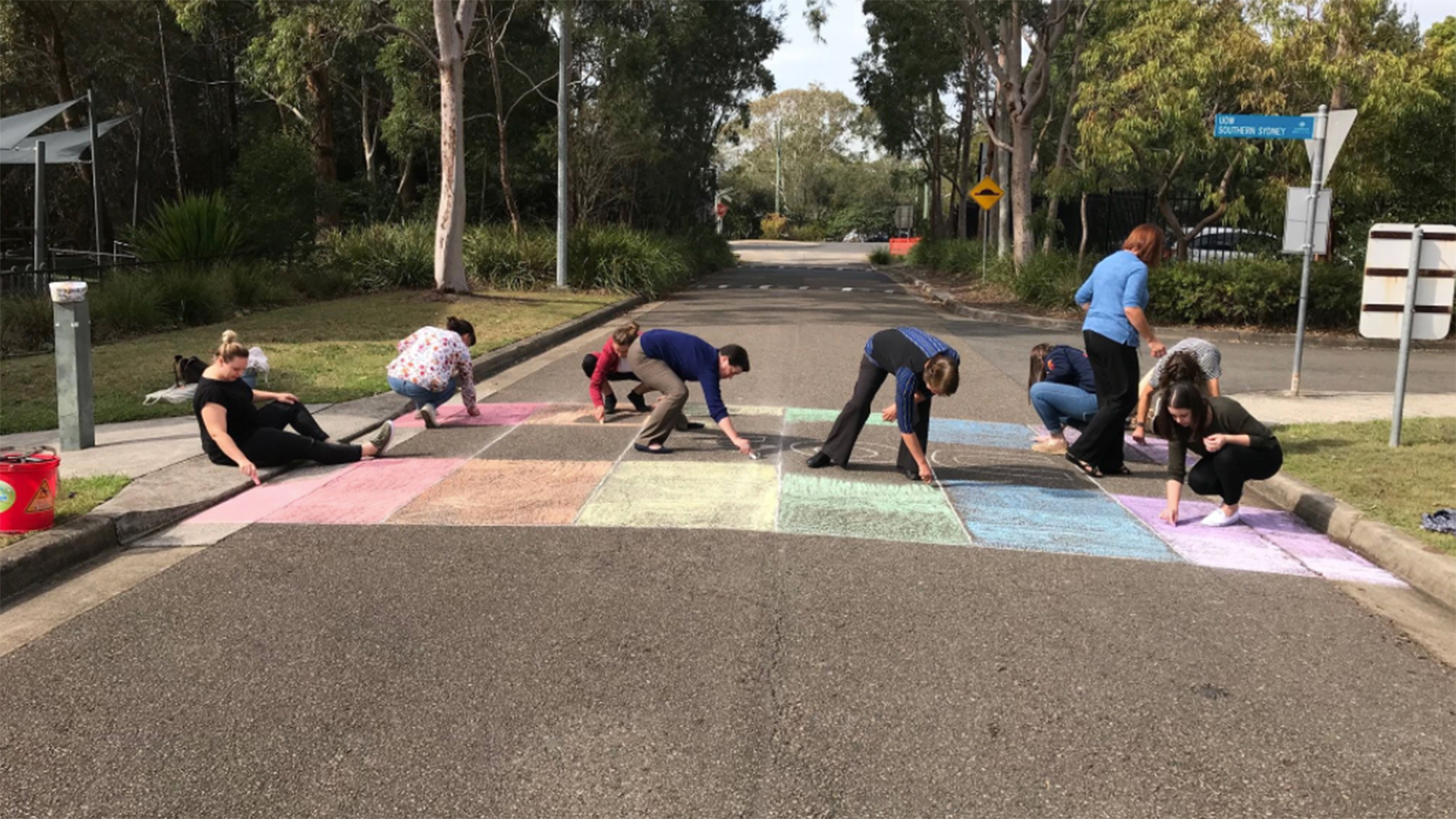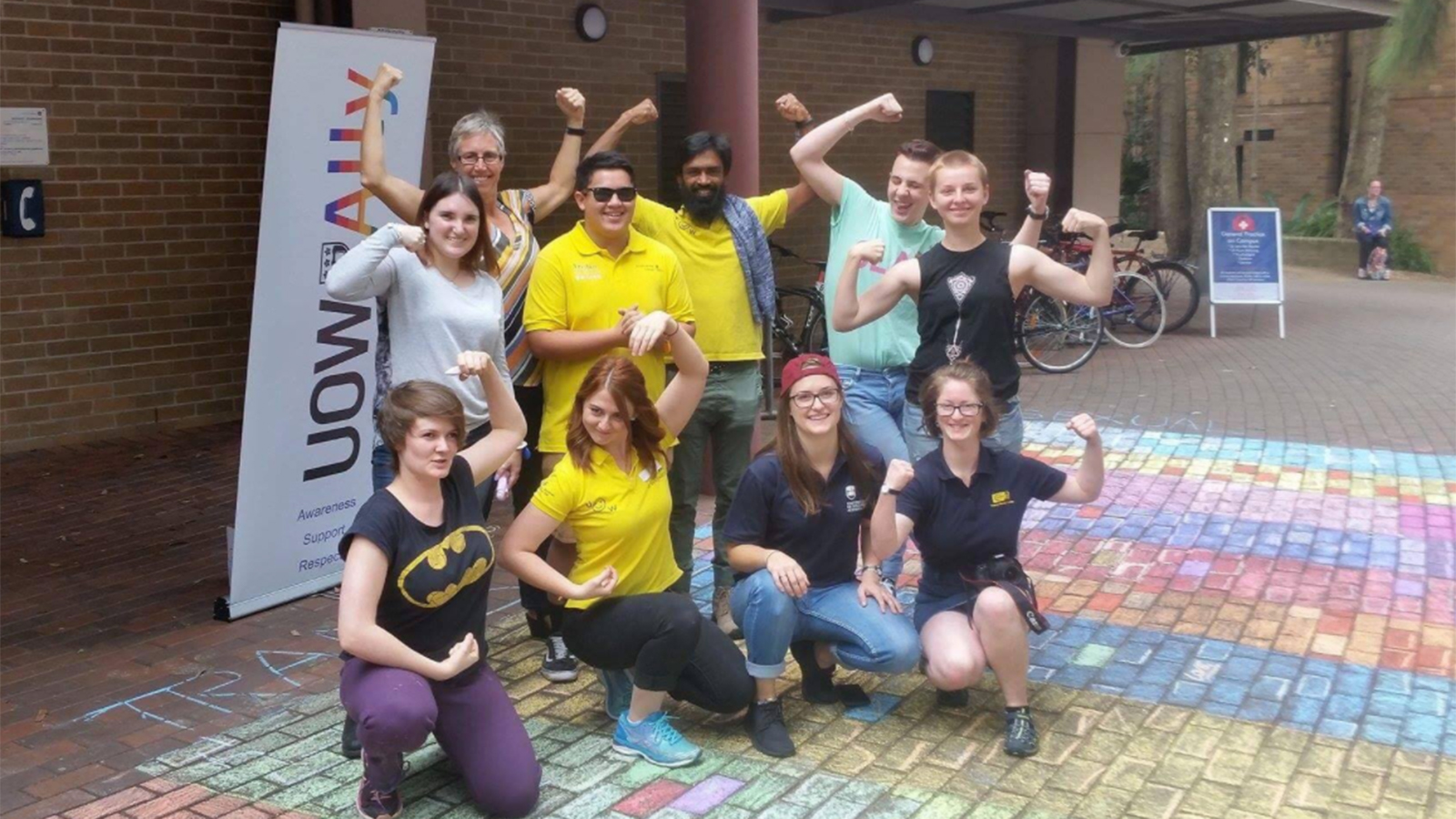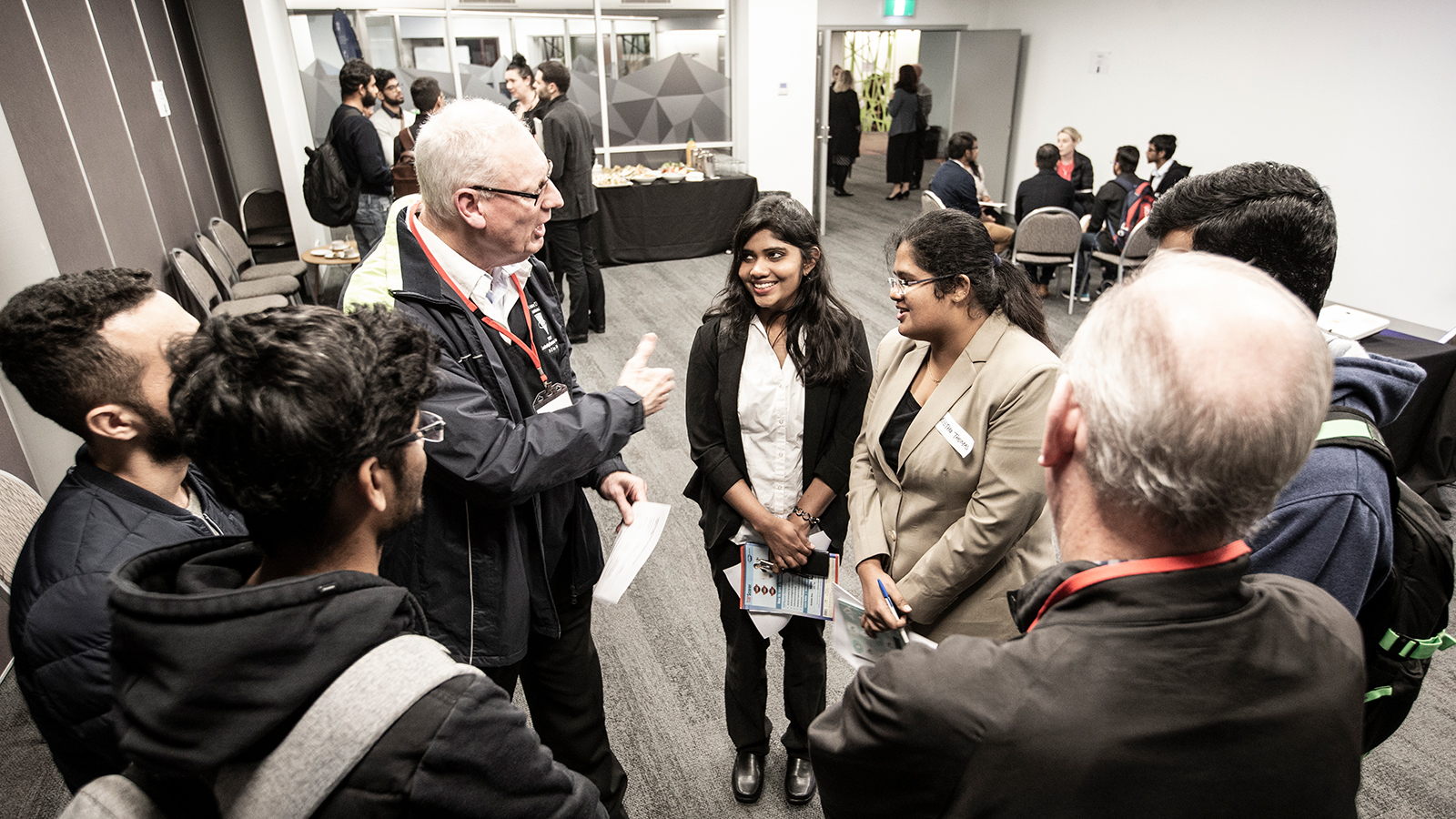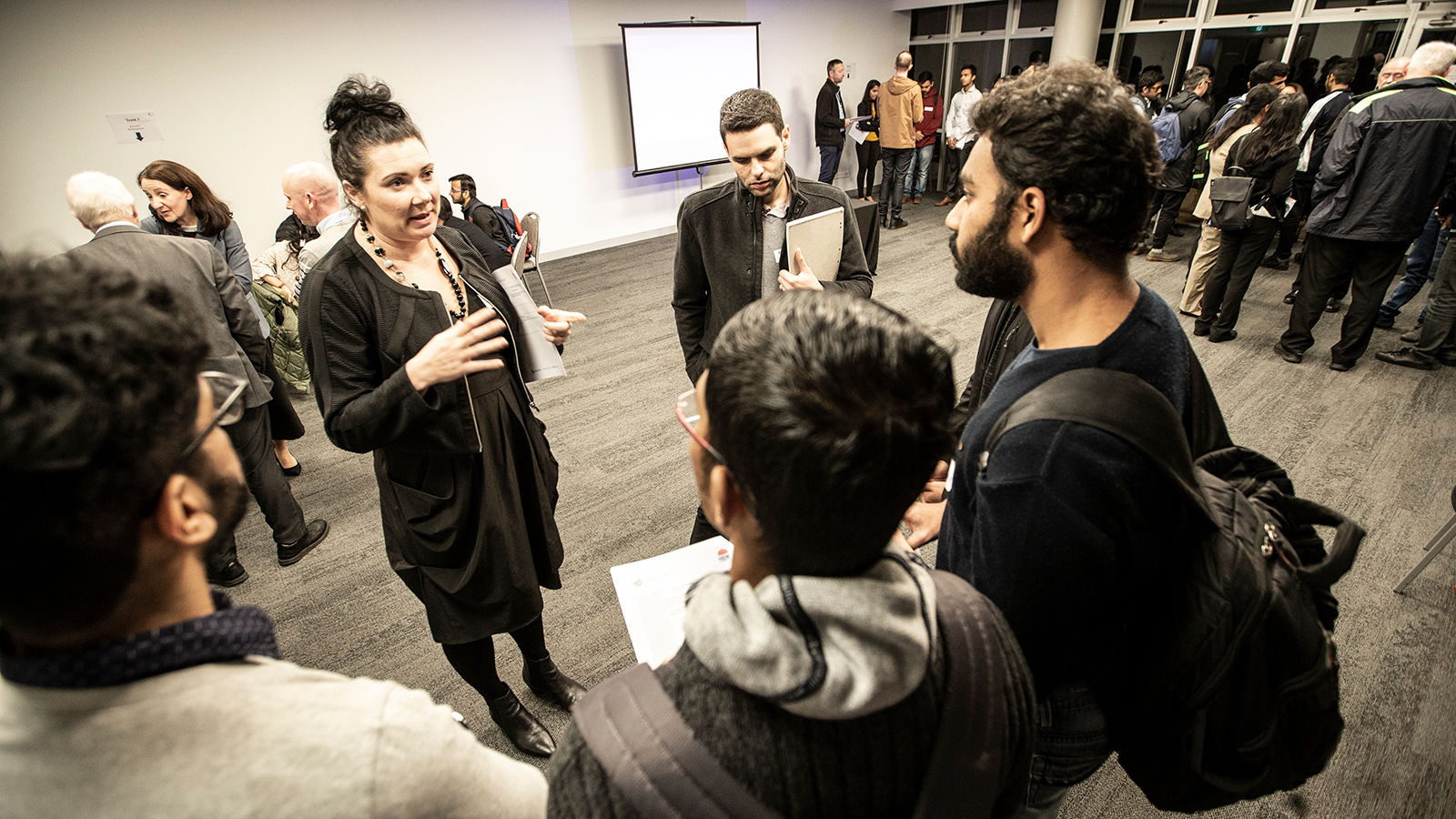UOW is committed to achieving the goals and aspirations of SDG 8 and demonstrates this by:
Goal 8: Decent Work and Economic Growth
Promote sustained, inclusive and sustainable economic growth, full and productive employment and decent work for all
- Striving to create meaningful change by combatting modern slavery practices in UOW’s supply chains and business operations.
- Raising awareness amongst UOW staff and students about slavery-like practices, to respond to and reduce the risks of modern slavery.
- Being committed to gender equality and promoting a diverse, equitable and inclusive culture for staff.
- Being an employer that provides staff with competitive salaries, access to generous superannuation, structured career progression and a healthy work/life balance.
2nd
In NSW (QILT Employer Satisfaction Survey 2022)
87.3%
Employer overall satisfaction rating of UOW graduates
87.1%
Graduates gained full-time employment within four months of completing their course (above the national average of 86.3%).
Teaching & learning
7,615
Students on work placements for longer than one month (2020)
5,239
Students studying subjects about this goal
Advocacy & outreach
998
Media articles about this goal
790M
These articles appeared in media outlets with a combined potential audience of 790M
Research
53.7%
Publications with international collaboration
66.7%
of the international collaboration publications are with developing countries
4.3
Citations per publication (global average 2.9)
54.7%
Publications in top 10% journals (9.4% in the top 1%)
2022 figures used unless otherwise specified.
Making impact locally
UOW is invested in improving the economic, social, and cultural life of everyone within our communities. Every $1 million in gross output due to UOW-related expenditure generates another $1 million of gross output elsewhere in the economy.
UOW produces an Economic Impact Report every four years that provides insight into UOW’s total economic contribution.





The UOW Equity & Diversity Counsellor provides individual career development support to students from Aboriginal or Torres Strait Islander backgrounds; with a disability; from low socio-economic backgrounds or students who have participated in the In2Uni Program. With a key focus on recognising the value of individual differences, assistance is offered in clarifying career direction; accessing workplace learning opportunities and information and resources.





Wages and pay scale equity
UOW offers competitive salaries, access to generous superannuation and structured career progression. UOW academic and professional salaries are significantly above the Australian Higher Education Industry award wage for general (professional) and academic staff.
UOW has taken the following actions to address pay scale equity:
- Extensive gender pay gap (GPG) measurement and analysis undertaken.
- Gender pay gap workshop conducted
- Reviewed remuneration decision-making processes
- Analysed commencement salaries to ensure pay scale gender equity
- Created a pay equity strategy/action plan




Equity, diversity and inclusion
UOW staff reflect the diversity of our community – in gender, sexuality, disability and cultural diversity. UOW is a place for all genders and UOW is proud of our culture that provides equal opportunity, where people can be their authentic selves and have policies and practices in place to ensure that we provide a fair and equitable campus. We welcome anyone regardless of age, race, disability, colour, gender identity or expression, sexual orientation, or economic background.
UOW has policies and practices in place to ensure that we provide a fair workplace and campus free from unlawful discrimination and harassment. Our inclusive values empower all staff to achieve their full potential and remove barriers to participation. We are also committed to removing barriers to the selection, advancement, and opportunities for people of all genders in the workplace and have solid training packages in place. UOW’s gender equality website provides further information on specific programs and initiatives to support gender equity.





Modern slavery
Modern slavery affects some 40 million people across the globe, with women and girls disproportionately affected. This grave violation of human rights is unacceptable. UOW is committed to making change that matters to meet this challenge and is committed to combatting modern slavery, forced labour, human trafficking and child labour.




Unions at UOW
UOW recognises the rights of its staff to freedom of association. There are two key unions that represent staff at UOW:
- The Community and Public Sector Union (CPSU), which is the specialist union for Professional Staff in higher education.
- The National Tertiary Education Union (NTEU), which is the specialist union solely representing staff in tertiary education.
UOW recognises and engages with both key unions as part of the collective bargaining (labour rights) process to renew enterprise agreements for staff. Enterprise agreements apply to all eligible staff, including women and international staff, regardless of whether they are union member or not. Enterprise agreements at UOW do not discriminate against any staff, and cover a range of employment related topics such as salaries and conditions (e.g. leave), dispute resolution, appeals processes on employee rights and pay, and many more.





iAccelerate
iAccelerate is a unique business accelerator and incubator program run by the University of Wollongong (UOW). It’s a thriving community of like-minded entrepreneurs with vision, purpose and passion, growing their impact through exceptional education, mentoring and support among inspiring surrounds.
iAccelerate has supported 316 startups and scaleups, delivered 1013 new jobs and 52%of iAccelerate companies have at least 1 active female founder. All 17 UN SDG’s are being addressed by iAccelerate resident companies, with the largest proportion focusing on SDG 8 – Decent work & Economic Growth.






Centre for Contemporary Australasian Business and Economics Studies
The Centre for Contemporary Australasian Business and Economics Studies (CCABES) fosters the development and promotion of collaborative research in contemporary Australasian business and economics among countries at different stages of economic development. Researchers have strong international profiles and research is innovative, of high quality research and has broad academic, business and policy impact.





Work Integrated Learning
Our vision is to provide opportunity for every UOW student to engage in a variety of scaffolded, purposefully-designed and learner-centred work integrated learning (WIL) experiences within their degree. Work Integrated Learning describes activities that integrate work practices with learning in an academic institution. Through WIL, students undertake authentic, experiential learning relevant to their program of study. WIL may occur in person or remotely, in a physical or simulated workplace, or in the classroom. It includes practicums, placements, internships, service learning, industry projects and experience, workplace simulations and professional activities.


























